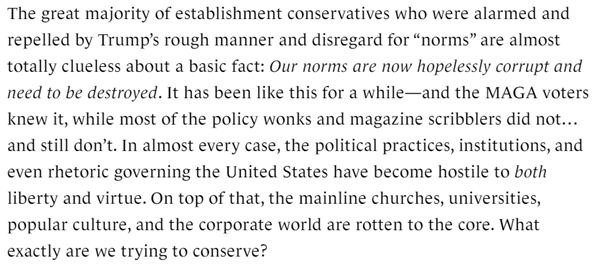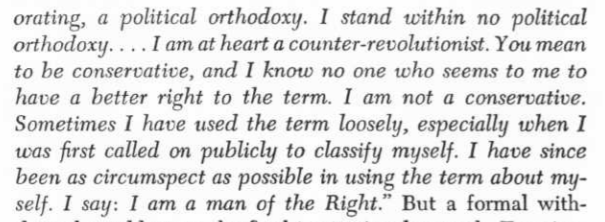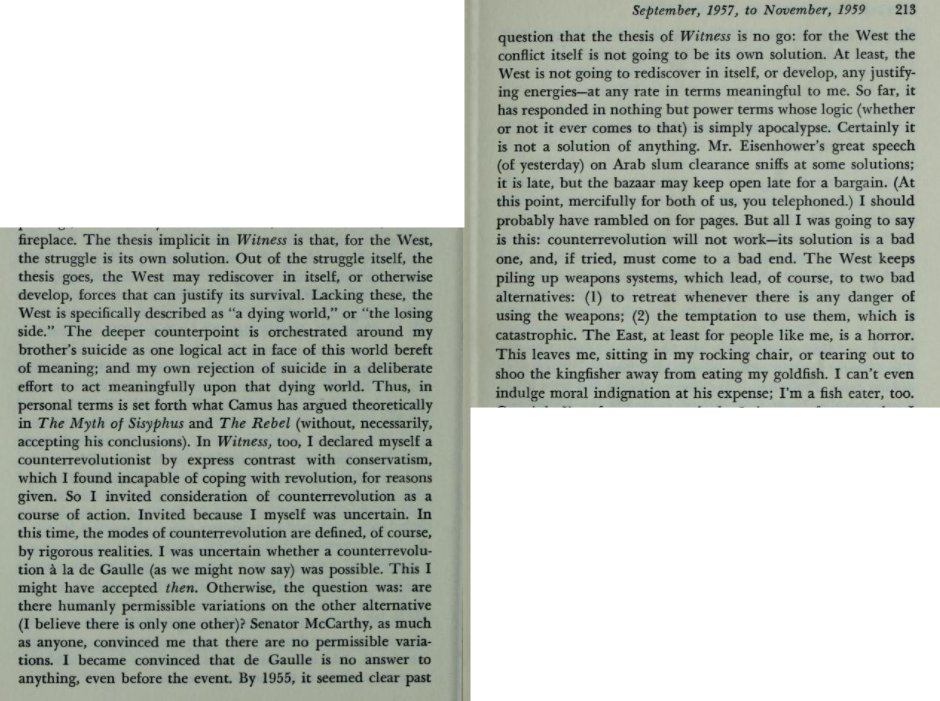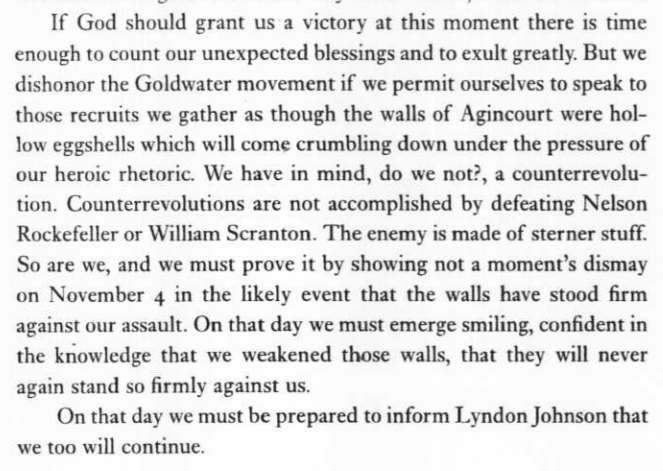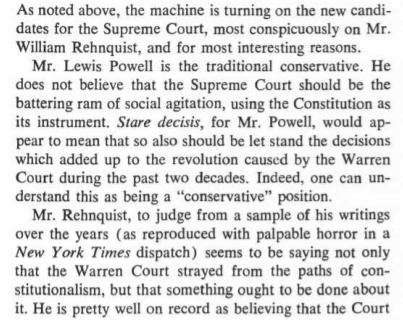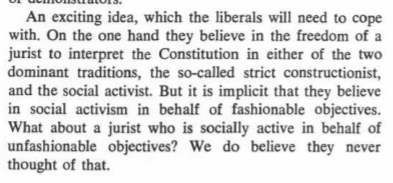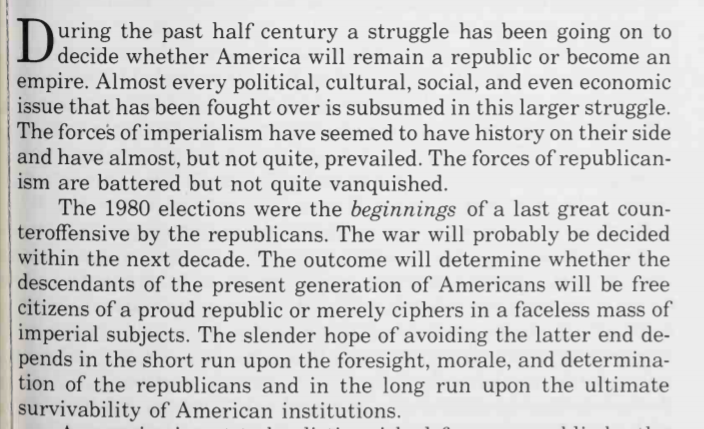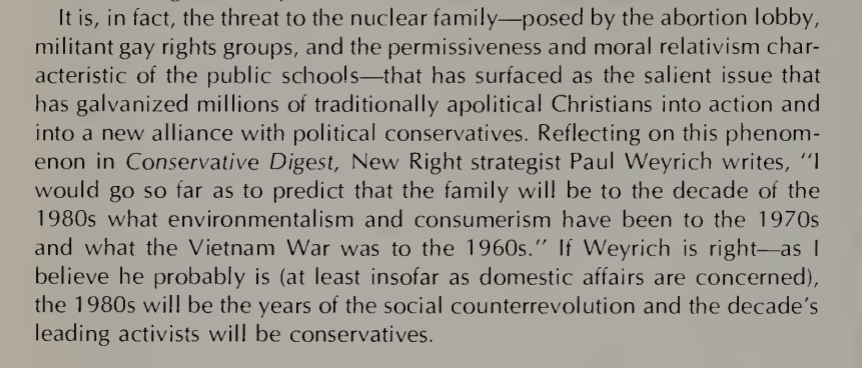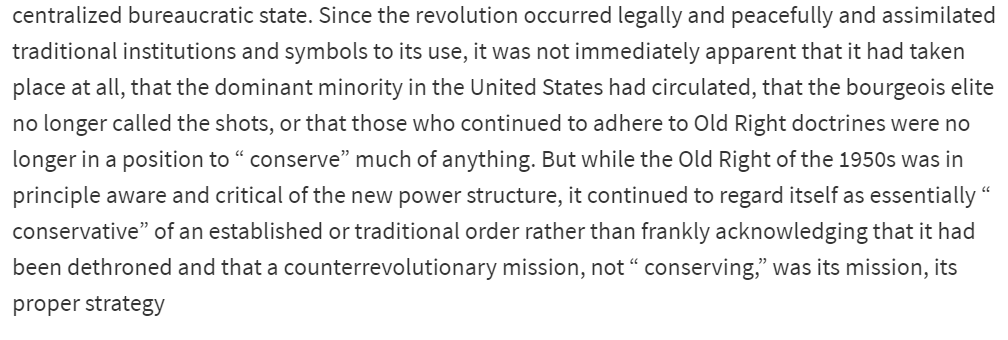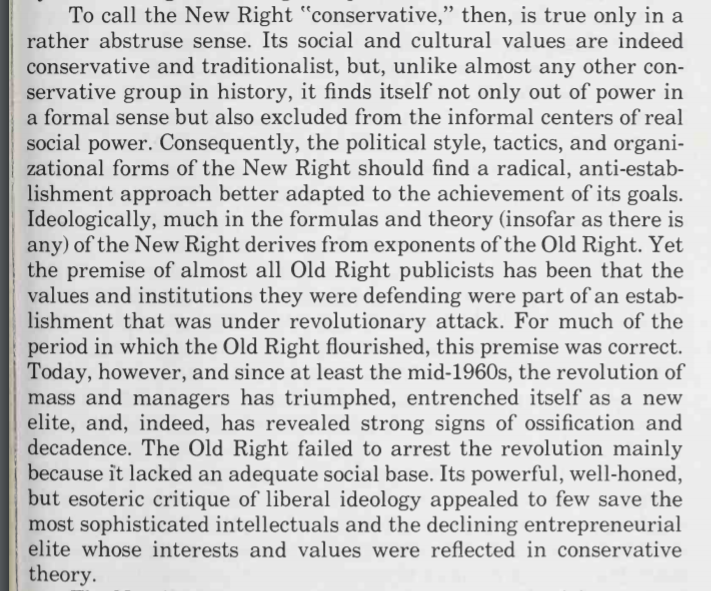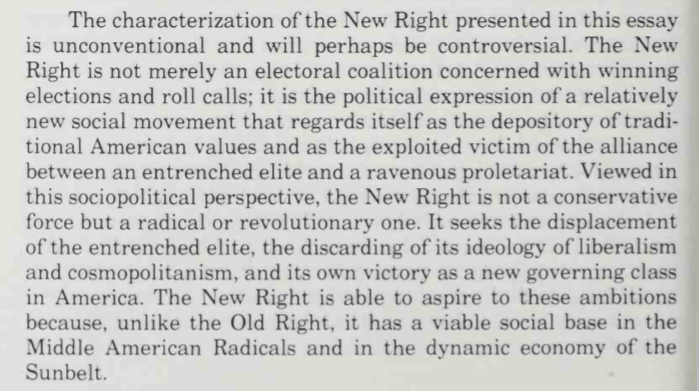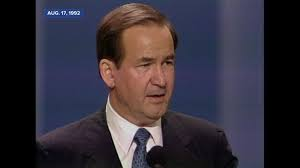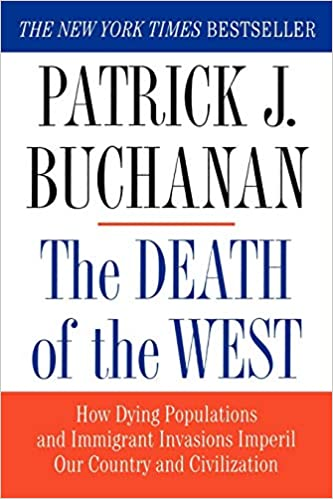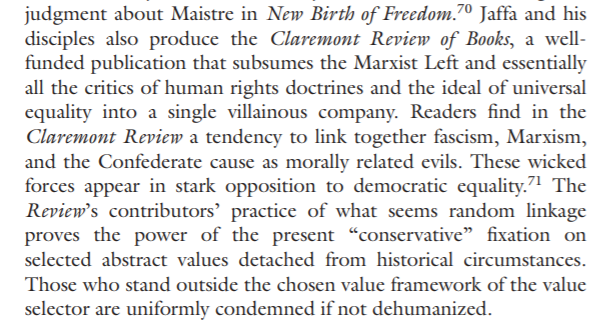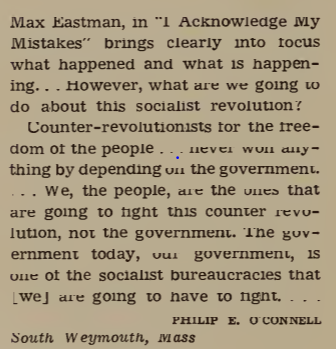After the recent American Mind piece on abandoning conservatism for counterrevolution, I did a little digging on conservative use of the term counterrevolution. (A thread) 1/
The piece in the AM, published by the Claremont Institute argued American norms have been so degraded, and American society so destroyed, there is nothing to conserve. All that& #39;s left is counterrevolution. 2/
As the AM essay makes clear, the conservative movement hasn& #39;t always embraced the language of counterrevolution, with some exceptions. The shift reflects anger with changing social norms, focus on immigration and the perceived failure of the right. 3/
Claremont is taking on the role of the paleoconservatives in the 1980s and 1990s - aggrieved and bitter and justifying the hard right. 4/
Historically, conservatives used "counterrevolution" in three different ways. Most uses drew on the concept of counterrevolution in a Marxist framework. As a former communist, Whittaker Chambers framed himself explicitly as a counterrevolutionary against communism. 5/
But most conservative references to counterrevolution in the 1950s through 1980s were ironic references to organizations charged with being counterrevolutionary – such as Hungarian protestors in 1954 or the Republic of Taiwan. 6/
Much of the time conservative journalists like William F. Buckley defended counterrevolutionary states or forces - such as Pinochet& #39;s Chile, Apartheid South Africa or Rhodesia - on the grounds they were a lesser evil irrationally hated by the left. 7/
(In Suicide of the West, James Burnham argues liberals "preferred enemy" is to the right, which makes them exaggerate the enormity of people like Franco. Buckleyite conservatives felt an impulse to defend right-wing authoritarians.)
A second use, less common, was ironic (semi-ironic?) references to the conservative movement. For instance in a disquisition on the "impending defeat" of Goldwater to YAF, Buckley noted: 8/
Five years later also to YAF, Buckley titled his address "Words to the Counterrevolutionary Young," but the phrase isn& #39;t in the text. Likewise, against student "revolutionaries" against Vietnam, WFB called for counterrevolutionary activities. 9/
The third use is regarding reactions to intellectual "revolutions." Conservatives regarded, for instance, Chicago school economics or what became originalism as an intellectual "counterrevolution." 10/
Note the legal counterrevolution of judges like Rehnquist was justified by the completed revolution in law. Conservatism - represented by Lewis Powell - no longer sufficed. 11/
A key shift in usage occurred in the late 1970s and early 1980s with the New Right and paleoconservative dissent against movement conservatism and the perceived failures of Reagan. See Tar Heel and former YAF member Clyde Wilson: 12/
The Paleoconservatives and New Right were focused on immigration, race, and collapse of traditional social mores and the rise of feminism and LGBT rights. They were embittered for many reasons by Reagan. Per M. E. Bradford: 13/
The New Right and Paleoconservatives theorized a counterrevolution, not against global Marxism, per Chambers, but against a changed America. Sam Francis was the key theorist. Francis saw conservatism as a failure, and that a right-wing future must be counterrevolutionary. 14/
Sam Francis was a friend and speechwriter for Pat Buchanan, who brought hard right social conservatism and anti-immigration to the fore. And it& #39;s the Buchananite conservatism that dominates today. 15/
It& #39;s ironic that Claremont is going in the paleoconservative direction, because the paleos once hated Claremont as a liberal appropriation of conservatism. Here& #39;s paleo Paul Gottfried: 16/
But the Claremont folks have, like the paleos and New Right, become fixated on immigration, race, and the failure of the conventional right to staunch the "revolution." They have imported an anti-Marxist framework into the US against American liberalism. 17/
But it strikes me that tough talk of counterrevolution is bluster in the face of many cultural reverses. Cultural conservatism may have failed, but cultural counterrevolution, at least as grandly as the American Mind piece means it, is a dead letter. 18/18
Addenda: movement conservatism& #39;s often apocalyptic, "the hour is late" rhetoric did much to set the stage for the shift to counterrevolutionary rhetoric. One National Review reader reached the conclusion early. Google suggests this guy got done for refusing to pay taxes.

 Read on Twitter
Read on Twitter

